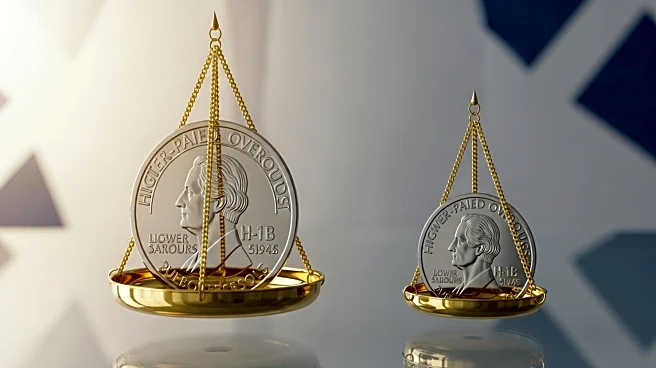What's Happening?
The Trump administration has proposed changes to the H-1B visa allocation process, aiming to prioritize higher-paid and higher-skilled foreign workers. The proposed rule, set to be published in the Federal Register, would replace the current lottery system with a weighted selection process. This change is intended to incentivize employers to offer higher wages and skilled positions to H-1B workers, while discouraging the use of the program for lower-paid roles. The proposal follows the administration's recent announcement of a $100,000 fee for new H-1B visa applications.
Why It's Important?
The proposed changes to the H-1B visa process could significantly impact U.S. industries that rely on foreign talent, particularly in tech, healthcare, and finance. By prioritizing higher-paid workers, the administration aims to ensure that the visa program supports its original intent of supplementing the U.S. workforce with specialized skills. However, this could disadvantage smaller companies and startups that may struggle to compete with larger firms in offering higher salaries. The proposal may also affect the demographics of H-1B visa holders, potentially reducing the number of lower-wage workers from countries like India and China.
What's Next?
The proposal will undergo a 30-day public comment period before being considered for a final rule. This process could take several months and may face legal challenges. Stakeholders, including tech companies, immigration advocates, and policymakers, are likely to engage in discussions and debates over the implications of the proposed changes. The outcome of this proposal could reshape the landscape of foreign labor in the U.S., influencing how companies recruit and retain international talent.









